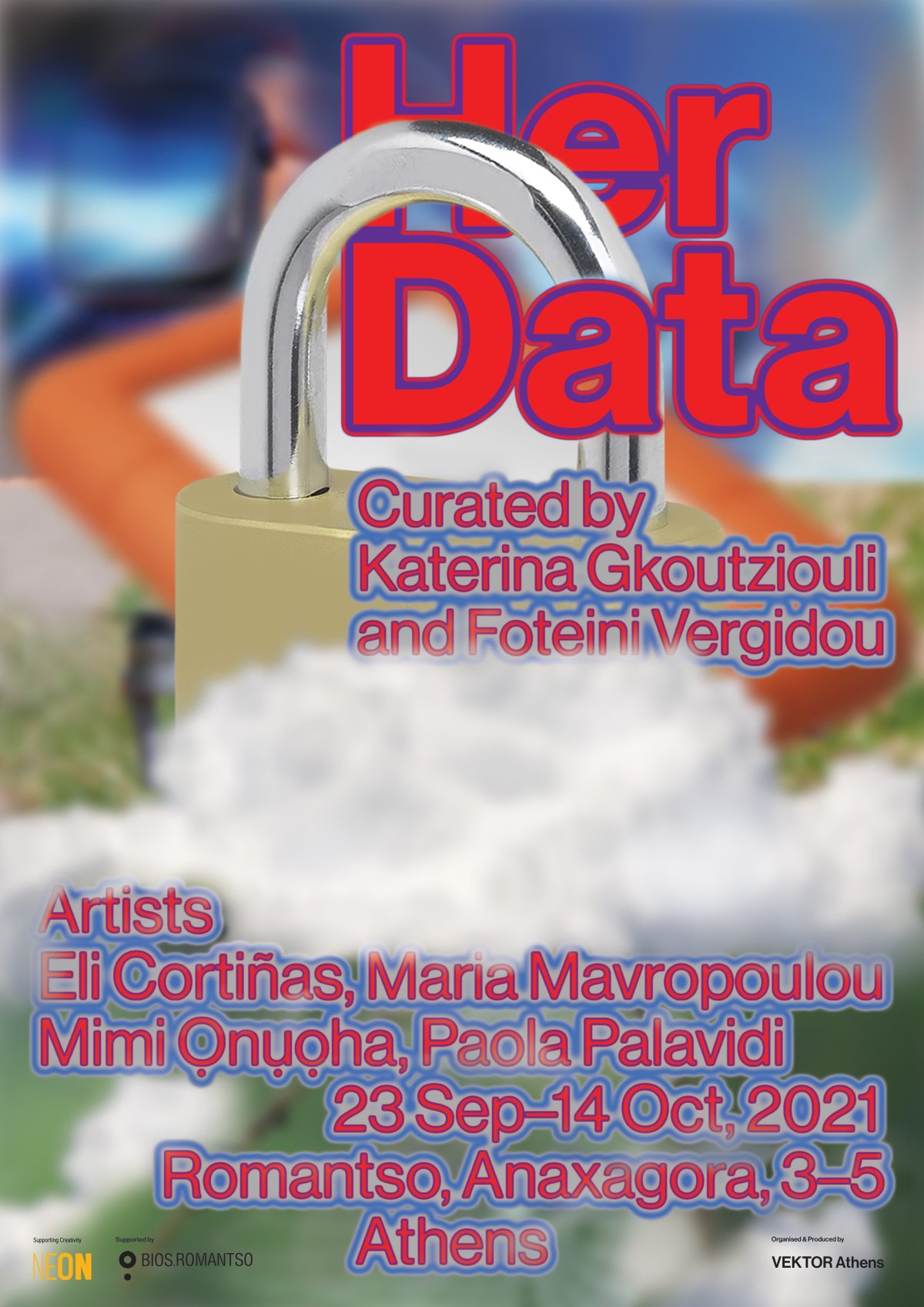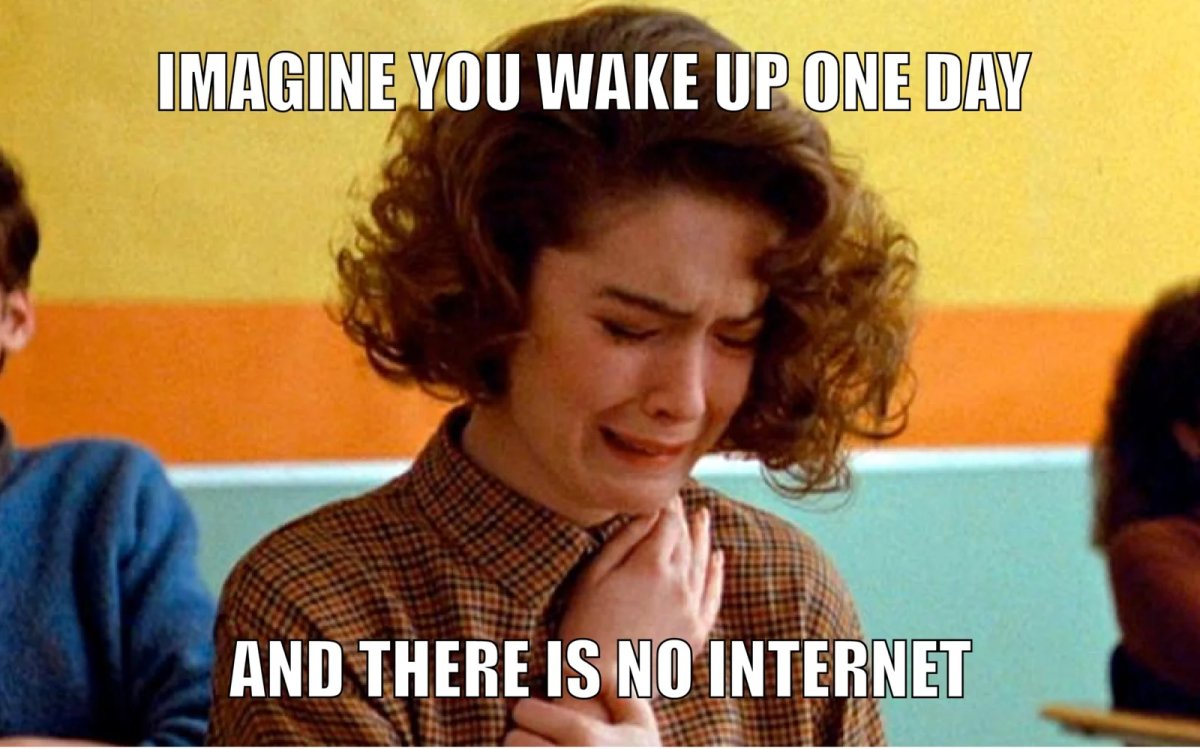Curating as a tool for reinforcing collective awareness
An interview with Katerina Gkoutziouli of Vektor Athens about her curatorial practice and the particularities of running an arts organisation in Greece.
My curatorial practice is about creating spaces that foster critical reflection and collective inquiry in relation to technological systems, be it the Internet, open-source technologies or AI. The ultimate goal is to generate new narratives and connect diverse audiences and groups of people that want to decipher and challenge the cultural, political, and ecological implications of these systems through exhibitions, meet-ups, open-access publications and other relevant formats, such as podcasts.
I think of exhibitions as spaces that can be transformed into platforms for dialogue, storytelling, and knowledge exchange...
I think of exhibitions as spaces that can be transformed into platforms for dialogue, storytelling, and knowledge exchange grounded in lived experience, activated by the artworks on display and the open, inclusive scenographic formats we design around them. For me, curating is about making connections between different artworks and artistic perspectives that can open up new ways of seeing and thinking. It is about presenting artworks relevant to contemporary concerns, building networks of trust with artists and audiences, and creating the conditions for the public to meet, connect and reflect. In this way, creativity and knowledge circulate beyond the exhibition space and become part of broader social conversations and shared inquiry.
The open-access publications we edit at VEKTOR, are always bilingual (Greek and English) in an effort to enrich the Greek research and bibliography, which remains very limited in the field of art and technology and also enhance the visibility of Greek artists outside the country.

How does one maintain a curatorial initiative in a mediterranean city?
Maintaining an independent arts organisation in Athens requires a high level of adaptability, persistence, and often a DIY approach. Greece has long been positioned on the periphery of the international art world and has also remained peripheral to the tech world, despite the recent establishment of major data infrastructures by companies like Microsoft, Amazon, and Google, positioning the city as an emerging node in Southeast Europe’s digital landscape. It still remains to be seen how this development will affect the local tech, cultural and environmental ecosystem.
Traditionally, the arts in Greece have received limited public funding, particularly for initiatives at the intersection of art and technology. However, this has begun to change with the rise of AI, which has drawn increased attention from both institutions and emerging artists. Institutional support is still inconsistent and there are very limited opportunities for curators, artists or independent art spaces through state and private funding. As a result, many initiatives rely primarily on self-organisation and self-funding, European and international partnerships, or ad-hoc funding from private local or international foundations.
Curators and artists in Greece, often occupy multiple roles — educators, organisers, producers, etc. — or they work outside the cultural sector to make ends meet. Given this context, while the local arts scene is vibrant, it is not always easy to evolve at the same pace as peers in other parts of Europe, the US or Asia.
The audiences we speak to are diverse, including artists, curators and researchers, academics and technologists, independent thinkers, communities and students. Given the complexity of the field, it is vital to build dialogue and trust among diverse communities in order to maintain an interdisciplinary curatorial initiative, one that can relate to both local and wider contexts.
What is one current phenomena that you are interested in?
I am currently interested in the — now mainstream — concept of “AI slop”, which has gained significant traction due to the rapid acceleration of generative AI. What interests me most is how disorienting and destabilising this whole new system of content creation and production has become. The volume of synthetic media that we consume daily, often without realising it, is overwhelming and unprecedented, and it is reshaping our aesthetics, opinions and perceptions of the world.
The work ahead lies not only in critiquing or regulating these systems, but in creating frameworks through which we can understand, rethink and reorient our relationship to AI and the algorithmic cultures that evolve.
The level of influence synthetic media now holds — used by diverse actors ranging from the US government to dark web trolls, alt-right groups and primary school students — raises urgent questions about power, control and agency in ways that we could hardly have imagined 3 to 4 years ago. Coupled with this comes the illusion of convenience. The ease of using commercial, ready-made AI tools often obscures the massive infrastructures that make them operational, including the energy and water consumption, mining of rare earth minerals and global labour networks behind seemingly effortless interfaces. This holistic social, cultural and ecological systemic transformation triggered by AI further complicates questions around fair use, ethics, accountability, equality, justice and environmental sustainability.
I see this moment as a significant social, cultural and ecological turning point, and not merely a technological disruption. The work ahead lies not only in critiquing or regulating these systems, but in creating frameworks through which we can understand, rethink and reorient our relationship to AI and the algorithmic cultures that evolve. At a time when AI contributes to the exhaustion of both human and natural resources, critical artistic practices may offer alternative models of thinking, reclaiming, and repairing. These practices highlight that not all knowledge or creativity needs to be automated, scaled or optimised. They help us connect with the relational and the slow modes of being — in contrast to the fast and extractivist logic of corporate AI systems. I believe it is crucial to support artistic and cultural practices that highlight the interconnections between the social, political, cultural and environmental implications of AI.
Why do you love the internet?
I love the Internet because it is my most loyal shadow. It is always tracing me even if I pretend to disappear.
